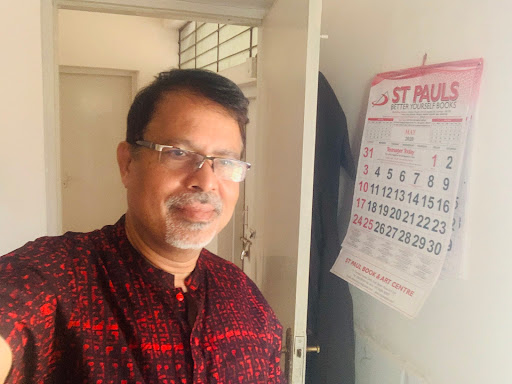We began our General Council meeting yesterday at 4pm in the Meeting Hall. All the Council members were present along with the two secretaries and Br. Vincenzo, the General Procura. He helps the council in explaining the cases of exclaustration, dissmissal and dispensation. He also helps in understanding the Canonical and Constutional side of the various cases that we receive every time. Yesterday we had not many cases but sufficient enough to tackle. The cases alone took the whole afternoon session. The meeting began invoking the Holy Spirit and then the General Minister welcomed the newly nominated Councilor Br. Victorius from Indonesia. We will continue the meeting this morning till evening.
Today is feast of the Holy Stigmata of St. Francis our Father and Founder.
In today’s Gospel, we hear that if anyone wants to follow me, let him deny himself, carry his cross daily and follow me (Lk
9, 23). We find in these words a compendium of Christian life, the
mirror of the Word into which the disciple must see his own face (Jn 1,
22-25). As Christians, our life must bear the features of Jesus, the
Son crucified out of love. By looking upon him who has been crucified
(Jn 19, 37), the cross becomes the seal of belonging to God in Jesus
(cf. Ap 7, 2ss; Ez 9, 4). To carry the cross daily means to take our
ills upon oneself; it means to die daily to ourselves for Christ; to
live for him to the point of saying, I am crucified with Christ and it is no longer I, but Christ who lives within me (Gal 2, 20).
Francis teaches us that you cannot be everything to others if you are
not, at the same time, everything to the Lord. Likewise, one cannot be
everything to the Lord unless one is not in constant search of one’s
inner self. The Little Poor Man of Assisi teaches us the need to have,
as part of one’s own existence, “a project of ecological life”, where
commitment for the sake of others is coupled by the “vacare Deo”,
that is, according to the wisdom of old, means to dedicate time for God
and for oneself. St. Francis, who is a “mendicant of meaning” and a
constant searcher of man, is also a constant searcher of God and His
Will. St. Bonaventure points this out, portraying Francis as one who,
for the purpose of constantly knowing himself, sought out and loved
solitude.




No comments:
Post a Comment